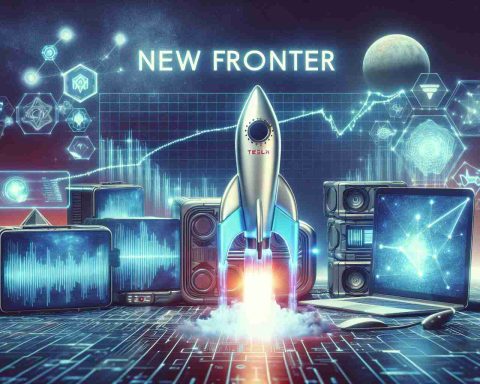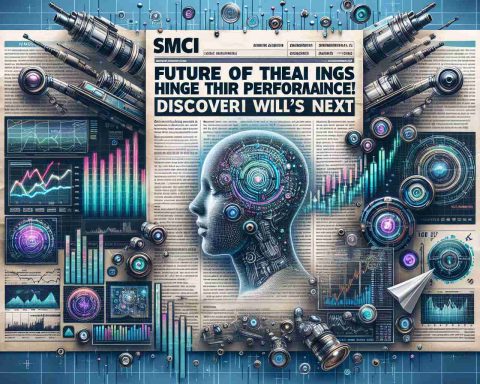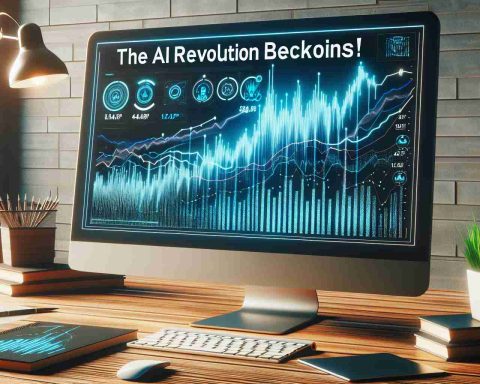In a headline-grabbing declaration, Donald Trump has announced a staggering $100 billion investment from SoftBank, a major Japanese company. Promising a significant leap in American employment, this fresh investment is expected to generate 100,000 new jobs, with a major focus on the artificial intelligence (AI) sector.
The Claim: Amidst a gathering at his Mar-a-Lago resort in Florida, Trump stood alongside Masayoshi Son, CEO of SoftBank, asserting that this massive financial commitment was a direct result of his recent presidential election victory. He emphasized that this investment showcases a robust vote of confidence in America’s future prospects.
Historical Context: Trump’s announcement followed in the footsteps of a similar pledge during his first presidency when he touted a $10 billion investment from the Taiwanese electronics company Foxconn, which was ultimately scaled down, yielding only about 1,000 jobs instead of the promised 13,000 in Wisconsin.
SoftBank’s Commitment: Masayoshi Son, who had previously announced a $50 billion investment in America back in 2016, declared his enthusiasm for doubling that commitment. He attributed this bold move to Trump’s leadership style, describing him as a “double-down president.”
Trump’s Vision: Trump expressed optimism that this investment would ensure that critical sectors like artificial intelligence and emerging technologies thrive on American soil. Meanwhile, Son expressed hope that Trump’s leadership would usher in a new era of global peace.
The announcement has been met with curiosity and cautious optimism, with questions lingering about the practical execution of this ambitious plan.
Exploring the Impact of SoftBank’s $100 Billion Investment in AI
SoftBank’s recent announcement of a $100 billion investment in the United States, primarily aimed at the artificial intelligence sector, is a move that has sparked widespread interest in both tech and economic circles. This move promises to create 100,000 new jobs and has been viewed with cautious optimism as well as skepticism due to past precedents.
The Pros and Cons of SoftBank’s AI Investment
Pros:
1. Job Creation: With the promise of 100,000 new jobs, this investment could significantly reduce unemployment and boost local economies.
2. AI Innovation: The infusion of capital into the AI sector can lead to major advancements and positioning the U.S. as a leading innovator globally.
3. Economic Growth: Large-scale investments can stimulate further economic activities and investment from other corporations both domestic and international.
Cons:
1. Past Disappointments: Historical parallels with previous investments, such as the Foxconn case, raise concerns about whether the promised jobs will materialize.
2. Execution Challenges: Implementing large-scale tech projects can face logistical and regulatory hurdles that may delay progress.
3. Dependence on External Investments: Relying heavily on foreign investments may raise questions about the sustainability and control over strategic industries.
AI Industry Insights: Trends and Innovations
The AI sector is at the forefront of technological innovation. The investment by SoftBank is timely as AI continues to revolutionize industries such as healthcare, finance, and transportation. The focus on AI showcases a broader trend where technology companies around the world are intensifying efforts to harness AI for creating competitive advantages.
Security and Ethical Aspects
With any large-scale deployment of AI technologies, concerns over data security and ethical usage become paramount. Ensuring that the AI technologies developed are secure from cyber threats is crucial. Additionally, establishing ethical guidelines to govern AI’s deployment could address public concern over privacy and bias.
Predictions and Future Outlook
Experts predict that if this ambitious investment is realized effectively, it could lay the groundwork for the U.S. to maintain or even extend its lead in the global tech race. This could also potentially catalyze further investments in AI research and development, enhancing innovations across multiple sectors.
Conclusion
While the announcement of SoftBank’s investment is monumental, its execution will be closely watched. Stakeholders—from government agencies to tech communities—will need to ensure the delivery of promised outcomes while addressing any challenges that may arise. The collaboration between SoftBank and US agencies could set a precedent in sourcing large-scale foreign investments in future-ready technologies.
For more insights into emerging technology and investment trends, please visit SoftBank.


















